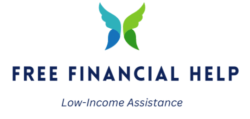Kansas Emergency Utility Assistance. In Kansas, programs can help low to moderate-income people pay their home energy, air conditioning, and energy bills. Find how and where to get help with utilities below, including emergency government grants to pay electric bills. Additionally, you can receive help with energy-conserving alterations to your home when you meet the criteria.
Non-profit organizations, charities, and utility companies offer many utility assistance programs. However, the state of Kansas and the federal government also provide low-income energy bill assistance.
Kansas Emergency Utility Assistance Programs
1. Administration for Children and Families
The Low Income Home Energy Assistance Program (LIHEAP). This program helps disadvantaged families pay their home energy bills. Safe and healthy living is a priority for LIHEAP’s creators. Crisis funds are available to households in imminent danger of going without heat. The cash amount will be applied as a credit to your electric or fuel account in a single payment.
2. Midwest Customers Care Program
The Midwest Customers Care Program helps low-income customers with their utility bills through the Midwest Clients Care program. The Salvation Army manages the fund, supported by donations from Midwest Energy consumers and staff.
To be eligible for this program, customers of Midwest Energy must have annual family incomes of less than 200% of the federal poverty line. A maximum of $200 may be awarded per heating season.
3. Kansas Emergency Rental Assistance Program
The Kansas Emergency Rental Assistance program helps families struggling to make ends meet because of the COVID epidemic. The KERA program offers help with rent, utilities, and internet access.
Both the landlord and the tenant must complete the application process online. Successful applicants may get funding for a period of up to a year. The Kansas Emergency Rental Assistance program has provided over $250 million in rental and utility assistance. This program prevents thousands of evictions and provides vital services to over 30,000 families on the verge of homelessness.
4. Lawrence Family Support Center
Suppose you or a family member are struggling financially and could help with food, rent, utilities, clothing, or medication. In that case, the Lawrence Family Support Center is ready to help. You are not charged for any of their services, regardless of financial circumstances. Free budgeting classes and tax returns are also available.
5. Affordable Connectivity Program
The FCC’s Affordable Connectivity Program provides financial assistance to needy households. Qualified homes can save up to $30 each month on internet access, and those living on eligible Tribal territory can save upwards to $75 per month.
In addition, eligible households can save up to $100 on purchasing a laptop, desktop pc, and tablet from a qualified supplier, provided that they donate between $10 and $50 more towards the purchase price. The Affordable Connectivity Program can only offer one discounted monthly service and one discounted device per home.
6. Emergency Broadband Benefit
In light of the current COVID-19 pandemic, the FCC has implemented the Emergency Broadband Benefit program to assist families and households in pursuing affordable internet connectivity.
If your household qualifies for the Emergency Broadband Benefit, you will receive a monthly discount on your broadband service. Participants will offer eligible household families a discount on purchasing a laptop, desktop pc, or tablet.
7. Lifeline Assistance Program
If you cannot afford Internet service, you might qualify for discounted Internet service through Lifeline assistance programs, which also sponsor free cell phones and services. Companies like Comcast, Cox, Connect2Compete, Century Link, and others partner with Lifeline to provide Internet discounts in low-income communities.
You are eligible for discounted high-speed Internet service if you receive help through public programs like SNAP, TANP, Medicaid, Section 8, and the Free Lunch Program. Learn more about access to affordable Internet.
8. Kansas Low-Income Energy Assistance Program
Low-income families in Kansas can receive help with their annual home energy bills. The federal government funds the Kansas Low Income Energy Assistance Program, which provides a one-time payment to qualified families.
You must be a Kansas resident and demonstrate financial need to participate in this assistance program for residential energy expenditures. If you are eligible, you or a family member already receive benefits from another government program such as SNAP, SSI, or TANF.
9. HeatShare Program
The HeatShare program is a collaboration between the Salvation Army and nearly all Kansas electric providers. The government developed the program to help low-income families deal with the stress of paying their wintertime electric, gas, and heating bills.
It’s meant for folks who have tried everything else and have nowhere else to turn. HeatShare’s primary mission is to aid the elderly, the disabled, and those whose health would be jeopardized if they lost heat or fuel. HeatShare can be a safety net for low-income Kansas families who can demonstrate a desire and meet other criteria.
The program aims to provide short-term aid to persons who can temporarily not cover their utility costs. Since its revenue comes solely from voluntary contributions, it faces severe constraints. Until the program’s funding runs out, it will continue throughout the state.
Low-income and working-poor families and those who have never asked for help are eligible for the program’s emergency and financial support. Due to the stagnant economy, this group is growing.
10. Kansas Homeowner Assistance Funds
The KHAF program helps Kansas families pay rent, mortgage, and other bills. Without this help, thousands of families face the prospect of homelessness and the disconnection of their utilities. Property owners are left alone to deal with the epidemic’s aftermath. Because of this same reason, They developed this program.
11. Dollar Aide
Kansas City Power & Light Dollar Aide may be able to help with power bill payments. The help is temporary and meant to get people through a tough time. Still, they may supplement it with connections to permanent public aid programs. Remember that the program’s resources are highly restricted and that not everyone can receive assistance.
Public donations fund the organization Dollar Aide. Multiple entities contribute to the financial backing. All donations directly assist low-income Kansas City Power & Light customers with their heating bills.
12. State Assistance for Housing Relief
The State Assistance for Housing Relief allows Rent and utility payments for qualified applicants will be made directly to the landlord or utility company. Property owners can also submit applications on tenants’ behalf.
The maximum amount of money they can give out in financial aid is 18 months, covering rental, utility delinquency starting in April 2020, and advance rent. Gas, electricity, water, sewage water, fuel, and garbage are all examples of utilities.
In addition to qualifying for rent subsidies, you may apply for utility assistance. You may still be eligible for SAFHR for Renters if you live in Kansas City. However, at present, Kansas city is implementing its own separate set of programs for locals. You can check it out from this website:
Conclusion
These are just some of the programs provided by the government and organizations for residents living in Kansas. If you ever need utility assistance and more, go through each program and find the best one for you and your loved ones. If you need help registering or applying, you can also go directly to their respective offices or centers.
Recent Posts
It's not always easy to find free mental health services nearby. Still, some groups offer free and confidential counseling, along with overall support for emotional health, especially for those...
Prayer for a Financial Breakthrough may seem strange for a financial help website. However, when you think about it, prayer is one of the best things you can do when you need help. No matter what...



One thought on “Kansas Utility Assistance Programs – Heat, Gas, Electric”
Comments are closed.